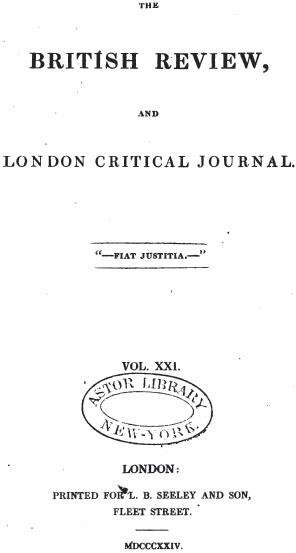
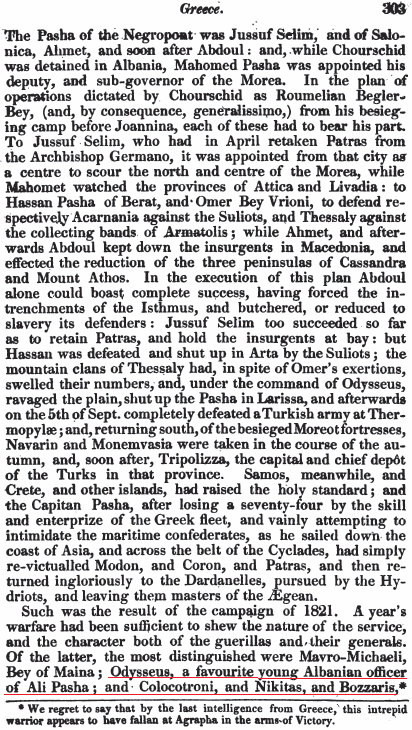
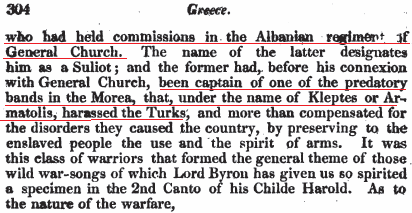
Moderator: Strokulli





Si e kishte ndryshe emrin Kollokotroni, Bithguri?! Ore djale me vjen shume keq me ty qe tregon kaq cektesi!!! degjo pak intervisten e Vangjeli Liapis tek dokumentari Arvanitet, edhe pastaj fol. Merre me rradhe edhe shturar leximin, mos i kerko edhe gjerat me te thjeshta te ti themi me rrokje!elikranon wrote:vajta per here te dyte tek postimi nr.66 po s`gjeta asgje per Kollokotronin dhe Karaiskaqin.Zeus10 wrote:Ceshte e verteta, ti ke provuar qe heziton ti lexosh faktet dhe kur pohimet ne to jane ne ligjerate te drejte.elikranon wrote:sollet bollek argumentesh mesa shoh
(postimi nr 66)
viewtopic.php?p=6612#p6612
Jep nje konsiderate per keto me siper, duke na shpjeguar sipas menyres tende, pse keto te mesipermet nuk jane te besueshme dhe mjaftueshme per ty.
Btw lexova dhe kujtimet e Kollokotronit dhe nuk permend asgje te tille per origjinen e tij.

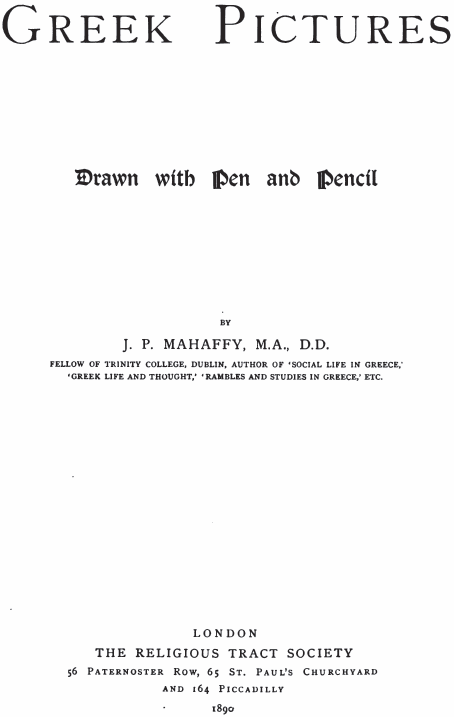
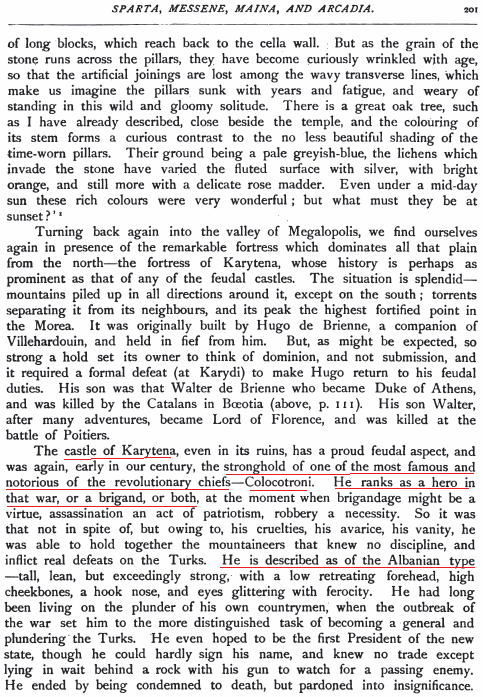
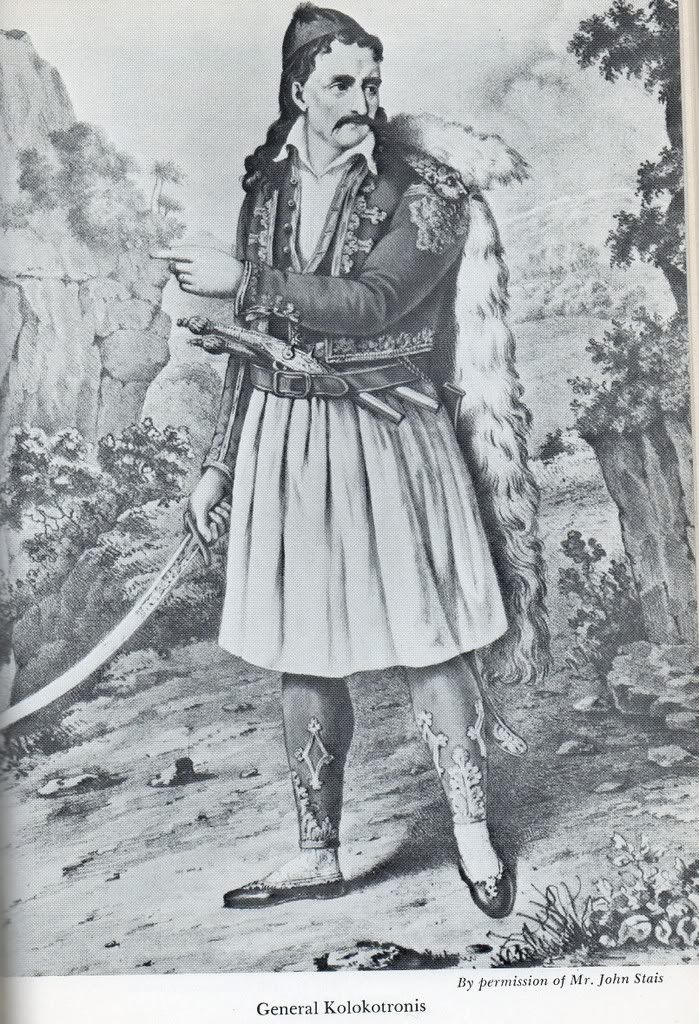

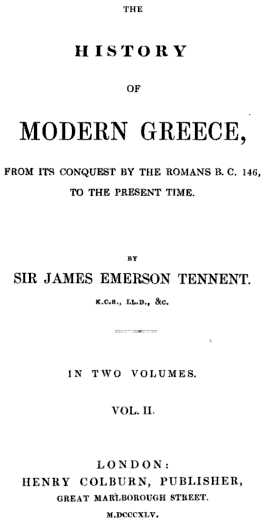

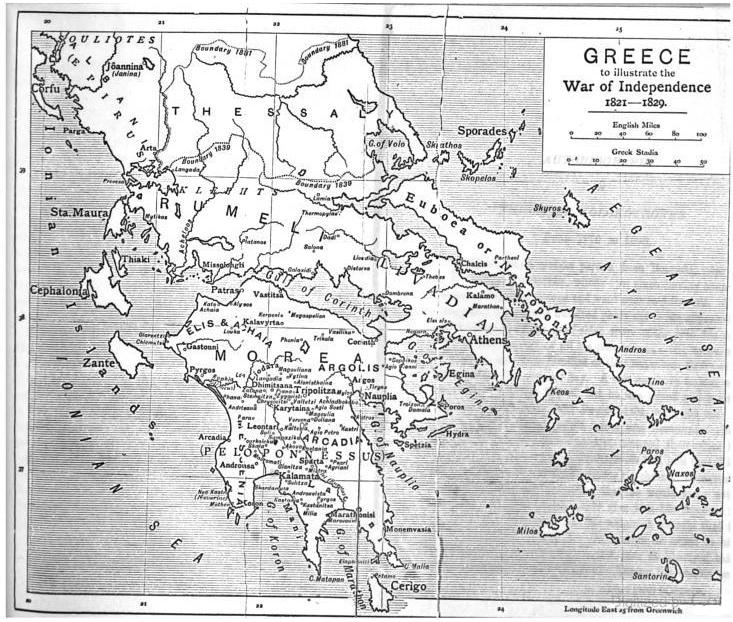

Pyeta dicka shume konkretisht dhe ti nuk solle ndonje pergjigje.Arta wrote: Si e kishte ndryshe emrin Kollokotroni, Bithguri?! Ore djale me vjen shume keq me ty qe tregon kaq cektesi!!! degjo pak intervisten e Vangjeli Liapis tek dokumentari Arvanitet, edhe pastaj fol. Merre me rradhe edhe shturar leximin, mos i kerko edhe gjerat me te thjeshta te ti themi me rrokje!

Code: Select all
Norman Douglas - 1923 - 246 pages
... skeletons by the wayside, leagues of burnt forest and olive-groves ; together with a few brighter descriptions of life in Arcadia, of those delightful Albanian children, and of chance meetings with the great Kolokotroni and others


Atehere ti duhet te kesh ndonje problem me leximin. Megjithate une po ta sjell dhe njehere postimin nr 66 ne linkun e meposhtem:elikranon wrote:vajta per here te dyte tek postimi nr.66 po s`gjeta asgje per Kollokotronin dhe Karaiskaqin.Zeus10 wrote:Ceshte e verteta, ti ke provuar qe heziton ti lexosh faktet dhe kur pohimet ne to jane ne ligjerate te drejte.elikranon wrote:sollet bollek argumentesh mesa shoh
(postimi nr 66)
viewtopic.php?p=6612#p6612
Jep nje konsiderate per keto me siper, duke na shpjeguar sipas menyres tende, pse keto te mesipermet nuk jane te besueshme dhe mjaftueshme per ty.
Btw lexova dhe kujtimet e Kollokotronit dhe nuk permend asgje te tille per origjinen e tij.


Albanian oficer e ka per Odysseus. Lexoje ti me mire.Arbëri wrote:-Albanian oficer
- He is described as on of the Albanian type
-He is on Albanian ... etj-etj ..


Kshu s'behet muhabeti djalo , kshu e veni veten edhe me shume ne dyshime kur mundoheni te pervetesoni figurat qe nuk ju perkasin nacionalitetit ''tuaj'..
Keta author , shumica prej tyre (shife vitin) ishin mu ne ate kohe kur ai ishte akoma gjalle , por nejse vazhdo ..

A nuk ishin greket dicka etnikisht e ndryshme nga shqiptaret? Si ka mundesi, qe keta arvanitet, qe bartin elemente te zakonshem te kultures shqiptare, si gjuha shqipe ne vater, veshje karakteristike shqiptare, valle dhe kenge shqipe, norma morale si BESA si shqiptaret, dhe cdo gje qe mund ti beje ata vecse shqiptare, na qenkan pjese origjinale e kombit grek?elikranon wrote: Arvanitet jane pjese vitale e kombit grek.

Shkrojta vitale dhe jo origjinale.Zeus10 wrote:A nuk ishin greket dicka etnikisht e ndryshme nga shqiptaret? Si ka mundesi, qe keta arvanitet, qe bartin elemente te zakonshem te kultures shqiptare, si gjuha shqipe ne vater, veshje karakteristike shqiptare, valle dhe kenge shqipe, norma morale si BESA si shqiptaret, dhe cdo gje qe mund ti beje ata vecse shqiptare, na qenkan pjese origjinale e kombit grek?elikranon wrote: Arvanitet jane pjese vitale e kombit grek.


Ashtu vertet, por propaganda e Greqise i shpall ata si greke origjinale.elikranon wrote: Arvanitet jane pjese vitale e kombit grek.
.........................................
Shkrojta vitale dhe jo origjinale..
Po, shumica e studjuesve, bie dakord qe ka pasur disa levizje demografike te shqiptareve drejt Greqise, por askush nuk sakteson nese ata u vendosen ne territore te papopulluara, apo u mbishtresuan mbi bashkombasit e tyre autoktone. Dhe me e rendesishmja, si ndodhi qe pa perjashtim te gjitha qendrat historike te Greqise, si Argosi, Sparta, Attika, Beotia etj ishin eksluzivisht te banuara vetem prej shqiptareve dhe jo prej grekeve? Ku jane greket, nese ata jane?Arvanitet u vendosen ne territoret greke ne sh.10-11, po ashtu dhe pas vdekjes se Kastriotit. Ne kete konkluzion bie shumica e studiuesve. Duke mos pasur nje distancim te madh nga greket, sidomos gjate perandorise otomane, ku rolin kryesor e luante feja dhe cfare mbart ajo me vete ne mentalitet, kulture, tradite e zakone, duke qene te perzier me popullsine greke dhe pas kaq shekujsh symbioze u identifikuan me greket.
When King Otto of Greece came in Greece in 1830, he hardly heard anyone speak in Greek and so he asked: "Where are the Greeks in Athens?"
His court looked at each other and answered: "There are no Greeks, but do not be troubled because this Albanian population will always be faithful to your monarchy".
Zaharias Papantoniou, "King Otto"
E verteta eshte qe luftonin shqiptaret muslimane cifligare kunder shqiptareve ortodokse qe urrenin bujkroberine dhe taksat. Me shume do ta quaja lufte klasoro-fetare mes shqiptareve, prej te ciles vilte frutet Turqia dhe Perendimi i Krishtere.Ju permendni Arvanitet dhe kontributin e tyre ne Rev. Grek, por harroni te na permendni forcat qe u derguan per ta shtypur. Po te bazohem ne logjiken tuaj, s`duhet te flas per nje Rev. Grek, por per Lufte Civile te Shqiptareve

Cfare thua eej? Eshte dashur te vie 2010'ta, fundi i decenies se pare te ketij mijevjecari, qe bota te iluminohej nga kjo thenie "arkimediane" se: "Arvanitet u vendosen ne territoret greke ne sh.10-11"!elikranon wrote: Arvanitet u vendosen ne territoret greke ne sh.10-11, po ashtu dhe pas vdekjes se Kastriotit. Ne kete konkluzion bie shumica e studiuesve.
E ke me te vertet! Kjo fare simbioze nuk eshte diktuar nga nje perzierje ose ndikim fetar apo politik. Sepse s'ka pase kurre kurfare arsyesh qe me pas perzierje. Perzierje mund te kete vetem ne raste te ballafaqimit te elementeve te ndryshem e jo te element te njejte substancial. Vete 'greket' e vjeter kane qene te vetedijshem per afrine e tyre me iliret.Elikranon wrote:
Duke mos pasur nje distancim te madh nga greket, sidomos gjate perandorise otomane, ku rolin kryesor e luante feja dhe cfare mbart ajo me vete ne mentalitet, kulture, tradite e zakone, duke qene te perzier me popullsine greke dhe pas kaq shekujsh symbioze u identifikuan me greket.
Edhe xhaxhi Strabo e miraton me gjithe zemer nje pohim te tille:The Greeks acknowledged some affinity of race between themselves and the Illyrians in the legend that Cadmus retired from Thebes with his wife Harmonia and settled in Illyria, where he became the father of Illyrius, the eponymous ancestor of the whole race. In harmony with this myth, the general consensus of modern investigation tends to the view that at an early period the whole of Europe south of the Danube, together with the centre and west of Asia Minor, were peopled by kindred races, some of whose names are preserved to us as Leleges, Thracians, Pelasgi, Illyrians...
http://www.1902encyclopedia.com/I/ILL/illyria.html
Pra, Straboni duke cituar Hekaten (shek. V) pajtohet se prania iliro-thrake e asaj kohe ne 'Greqi' ishte vec nje mbetje e nje pranie gjitheperfshirese e ilireve ne te kaluaren e ketij vendi.These alone, then, of all the tribes that are marked off by the Ister and by the Illyrian and Thracian mountains, deserve to be mentioned, occupying as they do the whole of the Adriatic seaboard beginning at the recess, and also the sea-board that is called “the left parts of the Pontus,” and extends from the Ister River as far as Byzantium. But there remain to be described the southerly parts of the aforesaid [Note] mountainous country and next thereafter the districts that are situated below them, among which are both Greece and the adjacent barbarian country as far as the mountains. Now Hecataeus of Miletus says of the Peloponnesus that before the time of the Greeks it was inhabited by barbarians. Yet one might say that in the ancient times the whole of Greece was a settlement of barbarians, if one reasons from the traditions themselves: Pelops [Note] brought over peoples [Note] from Phrygia to the Peloponnesus that received its name from him; and Danaüs [Note] from Egypt; whereas the Dryopes, the Caucones, the Pelasgi, the Leleges, and other such peoples, apportioned among themselves the parts that are inside the isthmus—and also the parts outside, for Attica was once held by the Thracians who came with Eumolpus, [Note] Daulis in Phocis by Tereus, [Note] Cadmeia [Note] by the Phoenicians who came with Cadmus, and Boeotia itself by the Aones and Temmices and Hyantes. According to Pindar, “there was a time when the Boeotian tribe was called “Syes.”
Moreover, the barbarian origin of some is indicated by their names—Cecrops, Godrus, Aïclus, Cothus, Drymas, and Crinacus. And even to the present day the Thracians, Illyrians, and Epeirotes live on the flanks of the Greeks (though this was still more the case formerly than now); indeed most of the country that at the present time is indisputably Greece is held by the barbarians—Macedonia and certain parts of Thessaly by the Thracians, and the parts above Acarnania and Aetolia by the Thesproti, the Cassopaei, the Amphilochi, the Molossi, and the Athamanes—Epeirotic tribes.
http://perseus.uchicago.edu/perseus-cgi ... r.%207.7.2